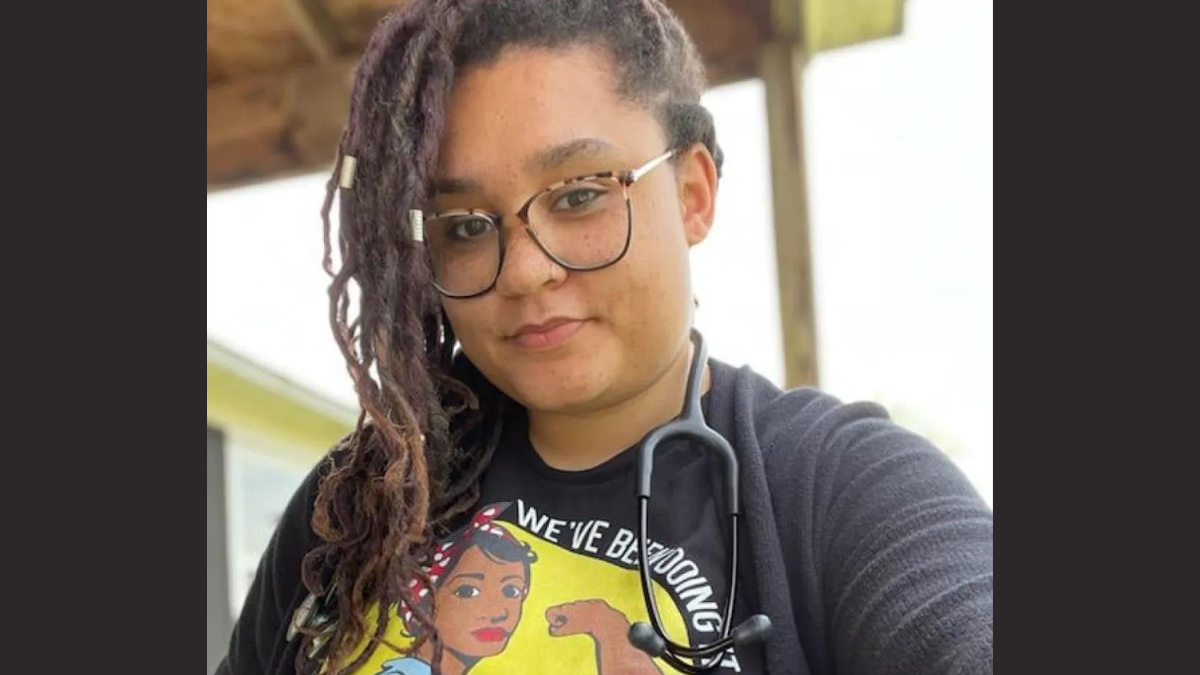This week on Inside Appalachia, amid recent hospital closures, Appalachian women are having to travel farther and farther to give birth.
We also learn how seed libraries and community gardens are helping to protect heirloom seeds from being lost.
And we hear more from our series on greyhound racing. This year, West Virginia will be home to the last two remaining greyhound racetracks in the United States. This week, we learn about the government policies that sustain dog racing.
In This Episode:
- Maternal Medicine In The Mountains
- Appalachian PRIDE
- Indigenous Gather In W.Va. To Discuss The Environment
- Greyhound Racing
- Canaries Out Of The Coal Mine
- Appalachia’s Food Deserts
- A Ray Of Hope
- Serious About Seed Saving
Maternal Medicine In The Mountains
We’ll talk with reporter Clarissa Donnelly-DeRoven about maternal health care deserts in western North Carolina and hear a report from Crystal Good, about what options Black families in West Virginia have for finding birth workers that look like them.
Appalachian PRIDE
Following one of the opinions written in the U.S. Supreme Court’s Dobbs decision, state legislatures across the Ohio Valley are considering anti-LGBTQ policies, while people across Appalachia took part in celebrations during LGBTQ Pride Month in June. Katie Myers with the Ohio Valley ReSource got reactions and spoke to residents.
Indigenous Gather In W.Va. To Discuss The Environment
High schoolers with Indigenous backgrounds came from all over the country to the Eastern Panhandle this summer for a leadership congress. They talked about conservation, Native identity, and the growing effects of climate change. Shepherd Snyder has the story.
Greyhound Racing Series Continues
In 2023, West Virginia will be home to the last two remaining greyhound racetracks in the United States.
Reporter Randy Yohe breaks down the government policies that sustain dog racing, and considers its future in the state at a time when it’s dying everywhere else.
Canaries Out Of The Coal Mine
As old coal mines are restored, they’ve been repurposed for an increasingly broad number of new uses. In Pennsylvania, reclaimed mine land is being used for an art project involving birds.
Kara Holsapple and Jacqui Sieber of The Allegheny Front have more.
Feeding The Hungry In Appalachia’s Food Deserts
Supply chain issues and rising gas prices are making it harder for people to get food. As David Adkins reports, local entrepreneurs are looking to meet the demand.
A Ray of Hope
Mountain View Solar, a solar installation company in Berkeley Springs, West Virginia, is training and hiring people in recovery from substance use disorder. Shepherd Snyder has this story.
Serious About Seed Saving
During the pandemic, millions of Americans turned to gardening. In Appalachia, people have long saved heirloom seeds that have been passed down for generations. Today, that tradition continues, partly through organizations like seed libraries and community gardens that collect these seeds to save them from being lost.
Folkways reporter Rachel Greene spent time in Ashe County, North Carolina — talking to the people giving new life to old seeds.
——
Our theme music is by Matt Jackfert. Other music this week was provided by Marisa Anderson, Michael Howard, Josh Woodward, the Hillbilly Gypsies.
Bill Lynch is our producer. Alex Runyon is our associate producer. Our executive producer is Eric Douglas. Kelley Libby is our editor. Our audio mixer is Patrick Stephens. Zander Aloi also helped produce this episode.
You can send us an email at InsideAppalachia@wvpublic.org.
You can find us on Instagram and Twitter @InAppalachia.
And you can sign-up for our Inside Appalachia Newsletter here!
Inside Appalachia is a production of West Virginia Public Broadcasting.
